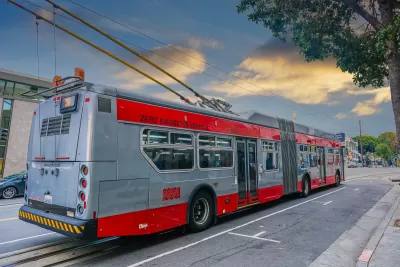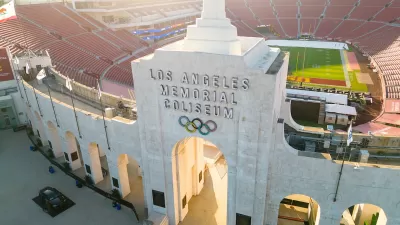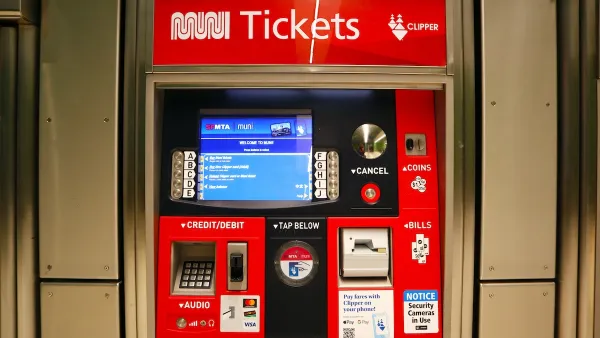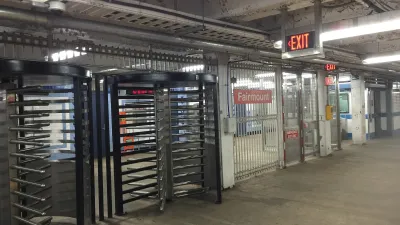To decarbonize its bus system, a new study recommends adding more substantial battery packs to the city’s historic—and all-electric—trolley bus fleet rather than replacing trolley buses with electric buses that require lengthy charging periods.

“Combining battery technology with existing trolley bus infrastructure is the best way for San Francisco to achieve zero emissions and a robust transit service, according to a study released Wednesday by The Climate and Community Project.” Writing in Streetsblog San Francisco, Roger Rudick outlines the report’s findings.
The report recommends adding In Motion Charging (IMC) technology and expanding its entire trolley bus fleet as the fastest and most efficient option for reducing carbon emissions. “However, SFMTA is also looking at replacing historic trolley-bus lines with … battery buses, even though trolley-buses already use zero-emission technology, powered by overhead wire.”
Rudick notes that “This seems to echo the historical error made by San Francisco and other American cities after WWII when they removed electric rail and trolley bus systems and replaced them with diesel buses.”
San Francisco Electrical Construction Industry Research & Advocacy Director Alex Lantsberg says battery-powered buses will have to spend more time out of the system charging, meaning the city will need more of them to provide effective service. “In addition, buses have to expend more energy accelerating when they carry heavy battery packs. And battery-only buses will do more damage to roads because they are heavier.”
Ultimately, Rudick writes, “the idea is to leverage and expand, rather than remove, the existing overhead trolley wire network. That will allow the city to reach zero emission transit more quickly than buying thousands of untested battery-only buses, many of which would just replace buses that are already zero-emission vehicles.”
FULL STORY: Study: Trolley Buses with Batteries are the Best Path to Zero Emissions

Planetizen Federal Action Tracker
A weekly monitor of how Trump’s orders and actions are impacting planners and planning in America.

San Francisco's School District Spent $105M To Build Affordable Housing for Teachers — And That's Just the Beginning
SFUSD joins a growing list of school districts using their land holdings to address housing affordability challenges faced by their own employees.

Can We Please Give Communities the Design They Deserve?
Often an afterthought, graphic design impacts everything from how we navigate a city to how we feel about it. One designer argues: the people deserve better.

The EV “Charging Divide” Plaguing Rural America
With “the deck stacked” against rural areas, will the great electric American road trip ever be a reality?

Judge Halts Brooklyn Bike Lane Removal
Lawyers must prove the city was not acting “arbitrarily, capriciously, and illegally” in ordering the hasty removal.

Engineers Gave America's Roads an Almost Failing Grade — Why Aren't We Fixing Them?
With over a trillion dollars spent on roads that are still falling apart, advocates propose a new “fix it first” framework.
Urban Design for Planners 1: Software Tools
This six-course series explores essential urban design concepts using open source software and equips planners with the tools they need to participate fully in the urban design process.
Planning for Universal Design
Learn the tools for implementing Universal Design in planning regulations.
Borough of Carlisle
Smith Gee Studio
City of Camden Redevelopment Agency
City of Astoria
Transportation Research & Education Center (TREC) at Portland State University
City of Camden Redevelopment Agency
Municipality of Princeton (NJ)





























